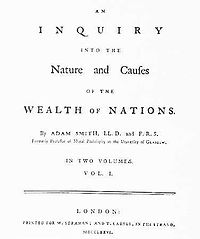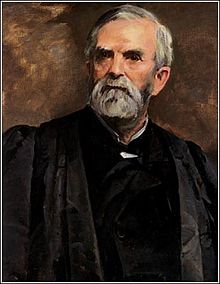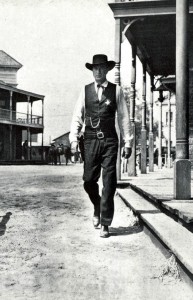Garofolo paid off her home equity note, but did not then receive the cancelled promissory note and a release of lien from the servicer, as required by the Texas Constitution, and the terms of the note. She sued for forfeiture of principal and all interest paid under the Constitution; the servicer admitted not having sent the papers, but contended that having the provision in the note was sufficient to comply with the Constitutional requirement. The Fifth Circuit certified this issue to the Texas Supreme Court: “Garofolo’s construction appears to give rise to a drastic remedy, but Ocwen’s construction appears to render the requirement a virtual nullity except in the (hopefully rare) circumstance where a lender unscrupulously attempts to enforce a paid note resulting in recoverable damages.” Garofolo v. Ocwen Loan Servicing, LLC, No. 14-51156 (June 9, 2015).
Estes sued JP Morgan Chase, alleging violations of the Texas Constitution with respect to a home equity loan. The Fifth Circuit affirmed dismissal on a basic ground: “Estes’s complaint fails to allege any connection between himself and JPMC except that Estes ‘notified [JPMC] that the original promissory note had not been returned,’ and that ‘[m]ore than 60 days have passed since plaintiff notified [JMPC] of its failure to cancel and return the promissory note.’ Considering the allegations in Estes’s complaint, and taking those allegations as true, Estes has not alleged that JPMC possessed the Note at the relevant time. He also has not alleged that he made payments to JPMC, nor has he alleged any other facts from which the Court could reasonably infer that the Note was made payable to “bearer” or to JPMC, as the definition of “holder” set forth in Tex. Bus. & Com. Code § 1.201 requires.” Estes v. JP Morgan Chase Bank, N.A., No. 14-51103 (May 20, 2015, unpublished).
 Plaintiffs sued Whirlpool, alleging that a gas range it manufactured made them sick from carbon monoxide emissions. They offered two causation experts, whose testimony was stricken by the district court under Daubert, which the Fifth Circuit affirmed. The first opined about the “general causation” link connection between carbon monoxide and health problems, but the main studies he relied on involved significantly higher concentrations than what was measured in Plainitffs’ apartment. The second, an “accomplished engineer with significant expertise in vehicular accident reconstruction and fire and explosion analysis,” did not have expertise on the issue in this case: “No gas appliance fire is at issue in this case; rather, the core claim here is that the gas range was defective because it emitted carbon monoxide in excess of an amount that is safe.” Macy v. Whirlpool Corp., No. 14-20603 (June 4, 2015, unpublished).
Plaintiffs sued Whirlpool, alleging that a gas range it manufactured made them sick from carbon monoxide emissions. They offered two causation experts, whose testimony was stricken by the district court under Daubert, which the Fifth Circuit affirmed. The first opined about the “general causation” link connection between carbon monoxide and health problems, but the main studies he relied on involved significantly higher concentrations than what was measured in Plainitffs’ apartment. The second, an “accomplished engineer with significant expertise in vehicular accident reconstruction and fire and explosion analysis,” did not have expertise on the issue in this case: “No gas appliance fire is at issue in this case; rather, the core claim here is that the gas range was defective because it emitted carbon monoxide in excess of an amount that is safe.” Macy v. Whirlpool Corp., No. 14-20603 (June 4, 2015, unpublished).
 Dan Peterson sued his former employer, Bell Helicopter Textron, for age discrimination under the TCHRA. The jury found that age was a motivating factor in his termination, but also found that Bell would have terminated him even without consideration of his age. The district court awarded no damages, but imposed an injunction on Bell about future age discrimination, and awarded Peterson attorneys fees of approximately $340,000. The Fifth Circuit reversed. Noting that the TCHRA allowed an injunction even in light of the unfavorable causation finding, the Court found that plaintiff’s request came too late, as Fed. R. Civ. P. 54(c) “assumes that a plaintiff’s entitlement to relief not specifically pled has been tested adversarially, tried by consent, or at least developed with meaningful notice to the defendant.” Here, Bell showed that it would have tried the case differently had it known an injunction was at issue. Accordingly, the fee award was also vacated. Peterson v. Bell Helicopter Textron, Inc., No. 14-10249 (June 4, 2015). A revised opinion honed the opinion’s analysis as to a potential alternative ground of fee recovery; the same day it issued, the full Court denied en banc review over a lengthy dissent.
Dan Peterson sued his former employer, Bell Helicopter Textron, for age discrimination under the TCHRA. The jury found that age was a motivating factor in his termination, but also found that Bell would have terminated him even without consideration of his age. The district court awarded no damages, but imposed an injunction on Bell about future age discrimination, and awarded Peterson attorneys fees of approximately $340,000. The Fifth Circuit reversed. Noting that the TCHRA allowed an injunction even in light of the unfavorable causation finding, the Court found that plaintiff’s request came too late, as Fed. R. Civ. P. 54(c) “assumes that a plaintiff’s entitlement to relief not specifically pled has been tested adversarially, tried by consent, or at least developed with meaningful notice to the defendant.” Here, Bell showed that it would have tried the case differently had it known an injunction was at issue. Accordingly, the fee award was also vacated. Peterson v. Bell Helicopter Textron, Inc., No. 14-10249 (June 4, 2015). A revised opinion honed the opinion’s analysis as to a potential alternative ground of fee recovery; the same day it issued, the full Court denied en banc review over a lengthy dissent.
 Defendants claimed that a foreclosure sale produced an unfair windfall for Fannie Mae on a substantial commercial property. They alleged that Fannie Mae had a practice of making unfairly low bids on Gulf Coast properties. The Fifth Circuit observed: “As the district court held, evidence regarding Fannie Mae’s other foreclosure practices throughout the Gulf Coast region would not impact whether the subject property was sold for the amount at which it would have changed hands between a willing buyer and seller having knowledge of the relevant facts. At most, such evidence might have suggested that Fannie Mae’s conduct throughout the region affected the fair market value of the subject property. So long as the property was sold for fair market value, however, evidence of the various market forces influencing that value is not relevant to this case.” Fannie Mae v. Lynch, No. 14-60864 (June 2, 2015, unpublished).
Defendants claimed that a foreclosure sale produced an unfair windfall for Fannie Mae on a substantial commercial property. They alleged that Fannie Mae had a practice of making unfairly low bids on Gulf Coast properties. The Fifth Circuit observed: “As the district court held, evidence regarding Fannie Mae’s other foreclosure practices throughout the Gulf Coast region would not impact whether the subject property was sold for the amount at which it would have changed hands between a willing buyer and seller having knowledge of the relevant facts. At most, such evidence might have suggested that Fannie Mae’s conduct throughout the region affected the fair market value of the subject property. So long as the property was sold for fair market value, however, evidence of the various market forces influencing that value is not relevant to this case.” Fannie Mae v. Lynch, No. 14-60864 (June 2, 2015, unpublished).
Plaintiffs settled a noncompete case with their employer, TXL Mortgage, and signed a broad general release of “all claims and causes of action that were or could have been asserted in the Lawsuit and all claims and causes of action related to or in any way arising from [their] employment with TXL, whether based in tort, contract (express or implied), warranty, deceptive trade practices, or any federal, state or local law, statute, or regulation.” Plaintiffs then sued for overtime wages under the FLSA.
The district court granted summary judgment for the employer, and the Fifth Circuit reversed, applying Martin v. Spring Break ’83 Productions, LLC, 688 F.3d 247 (5th Cir. 2012): “To deem the plaintiffs as having fairly bargained away unmentioned overtime pay based on a settlement that involves a compromise over wages due for commissions and salary would subvert the purpose of the FLSA: namely, in this case, the protection of the
right to overtime pay. Under these circumstances where overtime pay was never specifically negotiated, there is no guarantee that the plaintiffs have been or will be compensated for the overtime wages they are allegedly due under the Act.” Accordingly, the general prohibition on settlement of FLSA claims applied, and the exception recognized in Martin did not. Bodle v. TXL Mortgage Corp., No. 14-20224 (June 1, 2015).
 Constango Operators Inc. built a pipeline beneath the Atchafalaya Channel. Unfortunately, the Corps of Engineers neglected to forward information about that new pipeline to its Waterways Division, which supervises dredging operations. A dredging barge operated by Weeks Marine (the G.D. MORGAN, right) then hit the pipeline. The resulting trial awarded damages to Constango, with the U.S. liable for 60% and Weeks 40%, and the Fifth Circuit affirmed.
Constango Operators Inc. built a pipeline beneath the Atchafalaya Channel. Unfortunately, the Corps of Engineers neglected to forward information about that new pipeline to its Waterways Division, which supervises dredging operations. A dredging barge operated by Weeks Marine (the G.D. MORGAN, right) then hit the pipeline. The resulting trial awarded damages to Constango, with the U.S. liable for 60% and Weeks 40%, and the Fifth Circuit affirmed.
The opinion turns largely on issues or maritime law and the applicable federal regulations, but has three features of broad general interest:
- An exceptionally clear definition of “extrinsic evidence” as “anything outside a contract itself,” which excluded consideration of material from the Federal Register and CFR in construing an exculpatory clause;
- A reminder that a duty of care can arise from common law even though regulations control and define some aspects of the parties’ dealings; and
- A reminder, under general tort law, that “[t]he fact that Weeks followed the custom of the dredging industry is not dispositive, because a common practice can still be negligent.”
Contango Operators, Inc. v. USA, No. 14-20265 (May 28, 2015, unpublished).
Withdrawing an earlier panel opinion, the Fifth Circuit certified two insurance questions to the Louisiana Supreme Court in 2014, which have now been answered:
1. Whether an insurer can be liable for a bad-faith failure-to-settle claim when it never received a firm settlement offer. (The Fifth Circuit noted that a revised statute imposed “an affirmative duty . . . to make a reasonable effort to settle claims,” drawing into question prior case law in the area.) The Louisiana Supreme Court said: “Having determined that the plain language supports the existence of a cause of action in favor of the insured under [the revised statute], we answer this question affirmatively.”
2. Whether an insurer can be liable for “misrepresenting or failing to disclose facts that are not related to the insurance policy’s coverage” — namely, the status of a claim and related settlement negotiations. The answer: ” An insurer can be found liable under [the statute] for misrepresenting or failing to disclose facts that are not related to the insurance policy’s coverage; the statute prohibits the misrepresentation of ‘pertinent facts,’ without restriction to facts ‘relating to any coverages.'”
Accordingly, the Fifth Circuit remanded for further proceedings in Kelly v. State Farm, No. 12-31064 (May 29, 2015, unpublished).
 Former bankruptcy debtors sued their trustee, alleging that he failed to sue an insurer who could have satisfied many creditors’ claims. The district court dismissed because the plaintiffs did not first get leave from the bankruptcy court that appointed the trustee, and the Fifth Circuit affirmed under Barton v. Barbour, 104 U.S. 126, 128 (1881) (an opinion by the otherwise unmemorable William Burnham Woods, right).
Former bankruptcy debtors sued their trustee, alleging that he failed to sue an insurer who could have satisfied many creditors’ claims. The district court dismissed because the plaintiffs did not first get leave from the bankruptcy court that appointed the trustee, and the Fifth Circuit affirmed under Barton v. Barbour, 104 U.S. 126, 128 (1881) (an opinion by the otherwise unmemorable William Burnham Woods, right).
The debtors contended that Stern v. Marshall implicitly overruled Barton, in part, because the bankruptcy court would lack final adjudicative authority over their state law tort claims. The Fifth Circuit disagreed, holding that under Barton: “If a bankruptcy court concludes that the claim against a trustee is one that the court would not itself be able to resolve under Stern, that court can make the initial decision on the procedure to follow. Once a bankruptcy court makes such a determination, this court can review the utilized procedure.” Villegas v. Schmidt, No. 14-40423 (May 28, 2015).
TRC Environmental Corporation, the contractor on a project to decommission a power plant, sued LVI Facilities Services for breach of its subcontract with TRC. The subcontract said that “All disputes arising under the Contract Documents will be resolved in accordance with the terms of the Project Agreement”; otherwise, they would be arbitrated. The Project Agreement spelled out various ADR processes but did not require arbitration. In affirming the rejection of LVI’s motion to compel arbitration, the Fifth Circuit reminded: “The Federal Arbitration Act codifies a ‘liberal federal policy favoring arbitration agreements.’ But, this presumption applies when a court evaluates the scope of an arbitration under the second step of the arbitration analysis, not when a court is determining whether a valid arbitration agreement exists at all.” TRC Environmental Corp. v. LVI Facility Servcs., No. 14-51269 (May 22, 2015, unpublished).
In Harris v. Viegelahn, No. 14-400 (May 18, 2015), the Supreme Court resolved a split between the Third and Fifth Circuits and held 9-0 (contrary to the Fifth’s position) that “by excluding postpetition wages from the converted Chapter 7 estate (absent a bad-faith conversion), 11 U.S.C. § 348(f) removes those earnings from the pool of assets that may be liquidated and distributed to creditors.”
 Husky, a seller of electronic components, sued Ritz, a director of a company that owed Husky $163,999.38. Ritz was denied a bankruptcy discharge as to that debt based on 11 U.S.C. § 423(a)(2)(A), which excludes from discharge “any debt . . . for money, property, services, or an extension, renewal, or refinancing of credit, to the extent obtained by . . . false pretenses, a false representation, or actual fraud[.]” The Fifth Circuit reversed, finding that this statute did not apply “where, as here, the debtor made no false representation ot the creditor.” Husky International Electronics v. Ritz, No. 14-20526 (May 22, 2015).
Husky, a seller of electronic components, sued Ritz, a director of a company that owed Husky $163,999.38. Ritz was denied a bankruptcy discharge as to that debt based on 11 U.S.C. § 423(a)(2)(A), which excludes from discharge “any debt . . . for money, property, services, or an extension, renewal, or refinancing of credit, to the extent obtained by . . . false pretenses, a false representation, or actual fraud[.]” The Fifth Circuit reversed, finding that this statute did not apply “where, as here, the debtor made no false representation ot the creditor.” Husky International Electronics v. Ritz, No. 14-20526 (May 22, 2015).
Specifically, the Court rejected the Seventh Circuit’s contrary reasoning in McClellan v. Cantrell, 217 F.3d 890 (7th Cir. 2000), both as inconsistent with Fifth Circuit precedent, and with the Supreme Court’s reasoning about the level of reliance required by this section in Field v. Mans, 516 U.S. 59 (1995). The Court acknowledged the argument that “actual fraud” is one of three scenarios listed in the statute, but found that the canon of construction supporting this argument was a “guide[] that need[s] not be conclusive.” The Court also noted that the fraudulent transfer provisions of the Code addressed situations where the debtor did not make a direct misrepresentation.
 In a 2-1 decision, the Fifth Circuit has denied the federal government’s request to stay the district court’s injunction against key elements of President Obama’s immigration policy. Texas v. United States, No. 15-40238 (May 26, 2015). Judge Higginson’s dissent concludes that the issues before the Court are nonjusticiable. Judge Smith’s majority (joined by Judge Elrod), made these key points:
In a 2-1 decision, the Fifth Circuit has denied the federal government’s request to stay the district court’s injunction against key elements of President Obama’s immigration policy. Texas v. United States, No. 15-40238 (May 26, 2015). Judge Higginson’s dissent concludes that the issues before the Court are nonjusticiable. Judge Smith’s majority (joined by Judge Elrod), made these key points:
- On standing — “Texas’s forced choice between incurring costs and changing its fee structure is itself an injury: A plaintiff suffers an injury even if it can avoid that injury by incurring other costs. And being pressured to change state law constitutes an injury,”‘
- On the statutory merits — “[E]ven granting ‘special deference,’ the INA provisions cited by the government for that proposition cannot reasonably be construed, at least at this early stage of the case, to confer unreviewable discretion,” and
- On the APA issue — “But a rule can be binding if it is ‘applied by the agency in a way that indicates it is binding,’ and the states offered evidence from DACA’s implementation that DAPA’s discretionary language was pretextual.”
 More mandamus news of Trinity Industries, the Fifth Circuit, and the Marshall Division of the Eastern District of Texas. Recall that last October, the Fifth Circuit issued an unusual mandamus ruling that denied Trinity’s request for relief on the eve of trial in a high-profile qui tam case, but expressed concern that the federal government had “found the defendant’s product sufficiently compliant with federal safety standards and therefore fully eligible, in the past, present and future, for federal reimbursement claims.” The case went forward, the jury returned a large verdict against Trinity, and a later mandamus petition by Trinity was unavailing. Judgment has not yet been entered.
More mandamus news of Trinity Industries, the Fifth Circuit, and the Marshall Division of the Eastern District of Texas. Recall that last October, the Fifth Circuit issued an unusual mandamus ruling that denied Trinity’s request for relief on the eve of trial in a high-profile qui tam case, but expressed concern that the federal government had “found the defendant’s product sufficiently compliant with federal safety standards and therefore fully eligible, in the past, present and future, for federal reimbursement claims.” The case went forward, the jury returned a large verdict against Trinity, and a later mandamus petition by Trinity was unavailing. Judgment has not yet been entered.
The same players have returned to a similar stage. In January 2015, in a product liability case arising from a North Carolina automobile accident, Trinity moved to transfer venue from the Marshall Division. As discovery deadlines approached, Trinity filed an emergency stay application on May 6, and after hearing no response, sought mandamus relief from the Fifth Circuit on May 15. Later that day, the trial court ordered a transfer to North Carolina, mooting the mandamus petition.
Now it was the trial court’s turn to comment, adding an unusual “addendum” to its opinion. The trial court pointed out that it was already in the process of drafting an order to transfer venue when Trinity filed its mandamus petition. The court further noted that “Trinity has stumbled in its race for credibility” by seeking mandamus intervention, and counseled greater patience from litigants in the future in light of crowded docket conditions.
These events, aside of their dramatic nature, highlight a practical and important challenge of “rocket dockets.” Busy dockets, coupled with tightly compressed discovery schedules, can force counsel into “Catch-22” situations. Counsel either advises their clients to endure extensive, fast-paced litigation activity that they believe is in the wrong place, or risk the ire of courts by “bugging” them for dispositive rulings.
(This blog’s author represents Trinity but not in either matter referred to above.)
In declining to hear Crutchfield v. Sewerage & Water Board, the Fifth Circuit offered some rare guidance about what guides its discretion in accepting a petition to appeal under CAFA: “[N]o CAFA-related issues are raised in the petition for permission to appeal. See Alvarez v. [Midland Credit], 585 F.3d [890,] 894 [5th Cir. 2009] (vacating initial grant of permission to appeal under Section 1453(c), as the appeal no longer involved “unique issues under CAFA”); id. (“[Section 1453(c)] was intended to facilitate the development of a body of appellate law interpreting [CAFA] without unduly delaying the litigation of class actions.” (internal quotation marks omitted)); see also Perritt v. Westlake Vinyls Co., L.P.., 562 F. App’x 228, 230 (5th Cir.2014) (unpublished) (per curiam) (““[Section] 1453(c) tethers our discretionary review to CAFA determinations.”).” No. 15-90014 (May 19, 2015, unpublished).
Lincoln Insurance sued several defendants, who it accused of charging excessive fees and otherwise engaging in self-dealing to the detriment of Lincoln. Lincoln won a $16.5 million judgment against two of them for tortious interference. In a “grab bag” of holdings after both sides appealed, the Fifth Circuit held:
- It did not need to reach a difficult Erie issue about when a tortious interference claim accrues under Texas law, where some of the conduct occurs outside the limitations period, because the trial court found sufficient facts to establish that the discovery rule applied;
- Voluntary dismissal of a claim in amended pleading, in response to a dismissal order “based on a technical defect or withdrawal,” waives the right to appeal that order;
- The economic loss rule barred conversion claims where contract provisions dealt with the underlying rights and responsibilities; and
- When a contract provision expressly created a fiduciary duty as to the handling of funds in a particular account, that duty necessarily extended that duty to the handling of those funds before their deposit (and the trial court erred in holding otherwise, requiring a remand).
The Court noted: “[A] litigation strategy with a narrower focus on certain claims and Defendants might reduce the complications, both procedural and substantive, that arose the first go-around.” Lincoln General Ins. Co. v. U.S. Auto Ins. Servcs., Inc., No. 13-10589 (May 18, 2015).
 Johnson submitted a claim about his personal injuries to the “Gulf Coast Claims Facility,” an entity created to facilitate the resolution of claims against BP about the Deepwater Horizon accident. The GCCF recommended a settlement of roughly $2.7 million. Johnson accepted the proposal and BP allowed its 14-day appeal period to run. During that period, however, BP made an indemnity demand on another company, who raised serious questions about the veracity of Johnson’s claim. BP sought to set aside the settlement, and the case of Johnson v. BP Exploration & Production, Inc. ensued. No. 14-30269 (May 15, 2015).
Johnson submitted a claim about his personal injuries to the “Gulf Coast Claims Facility,” an entity created to facilitate the resolution of claims against BP about the Deepwater Horizon accident. The GCCF recommended a settlement of roughly $2.7 million. Johnson accepted the proposal and BP allowed its 14-day appeal period to run. During that period, however, BP made an indemnity demand on another company, who raised serious questions about the veracity of Johnson’s claim. BP sought to set aside the settlement, and the case of Johnson v. BP Exploration & Production, Inc. ensued. No. 14-30269 (May 15, 2015).
As to contract formation, the Fifth Circuit found that: (1) “Johnson accepted the offer in the [GCCF] Determination Letter by its own terms by timely submitting the Final Payment Election Form and agreeing to subsequently sign the Release, and because BP declined to appeal that offer within the fourteen-day period, both an offer and acceptance occurred”; and (2) the actual terms of the release were not material to the formation of the settlement agreement, and neither was its actual delivery. However, after acknowledging the general rule that “simply couching . . . prior litigation as ‘fraudulent,'” will not support a fraudu lent inducement claim, the Court concluded that BP had raised a question as to whether an exception applied when “the defendant subsequently uncovers previously unavailable evidence that the plaintiff was in fact not injured at all, or sustained only de minimis injuiries.” Accordingly, the Court remanded for an evidentiary hearing about the issue of fraudulent inducement.
lent inducement claim, the Court concluded that BP had raised a question as to whether an exception applied when “the defendant subsequently uncovers previously unavailable evidence that the plaintiff was in fact not injured at all, or sustained only de minimis injuiries.” Accordingly, the Court remanded for an evidentiary hearing about the issue of fraudulent inducement.
 A medical practice hired an employment agency, which recommended an office manager who then embezzled $60,000. The practice sued the agency and lost. The Fifth Circuit observed that under the Texas definition of a “producing cause”:
A medical practice hired an employment agency, which recommended an office manager who then embezzled $60,000. The practice sued the agency and lost. The Fifth Circuit observed that under the Texas definition of a “producing cause”:
- “when boys meet a man because he volunteers with their Boys Club, but the boys and their family then befriend the man outside of the club context, the club’s misrepresentation that it thoroughly checks the background of its volunteers is not a producing cause of the man’s later molestation of the boys outside of the club,” and
- “when a church advertises a teenage boy as a babysitter and parents hire him, the
church’s advertisement is not the producing cause of his later molestation of
their children because the parents themselves chose to hire the teenager as a
babysitter.”
Accordingly, “[b]ecause the doctors of the Medical Group decided to hire Brown based upon their own observations, we conclude that [the agency’s] conduct was not the producing cause of the Medical Group hiring Brown and its resulting injuries.” Cox, Chanez & Williams v. Howroyd-Wright Employment Agency, Inc., No. 14-10799 (May 14, 2015, unpublished).
 The latest appeal about BP’s class settlement of Deepwater Horizon claims — a long and winding path — involved the rights of claimants to appeal a benefit decision to the Fifth Circuit, after review in the district court. While the Court’s ultimate holdings turn on the specific parts of the settlement at issue, on the threshold issue of the claimants’ appeal right, the Court held: “We choose to follow these other circuits’ decisions in similar cases involving consent decrees to hold that, where a settlement agreement does not resolve claims itself but instead establishes a mechanism pursuant to which the district court will resolve claims, parties must expressly waive what is otherwise a right to appeal from claim determination decisions by a district court. Given that there has been no such express waiver in the instant case, the parties have preserved their right to appeal from the district court to this court.” Lake Eugenie Land & Development v. BP Exploration & Production, No. 13-30843 (May 8, 2015).
The latest appeal about BP’s class settlement of Deepwater Horizon claims — a long and winding path — involved the rights of claimants to appeal a benefit decision to the Fifth Circuit, after review in the district court. While the Court’s ultimate holdings turn on the specific parts of the settlement at issue, on the threshold issue of the claimants’ appeal right, the Court held: “We choose to follow these other circuits’ decisions in similar cases involving consent decrees to hold that, where a settlement agreement does not resolve claims itself but instead establishes a mechanism pursuant to which the district court will resolve claims, parties must expressly waive what is otherwise a right to appeal from claim determination decisions by a district court. Given that there has been no such express waiver in the instant case, the parties have preserved their right to appeal from the district court to this court.” Lake Eugenie Land & Development v. BP Exploration & Production, No. 13-30843 (May 8, 2015).
 Heritage and OMG disputed their commissions related to the auction of high-end firearms (such as Colt’s Texas Paterson, right). They arbitrated and Heritage won. OMG successfully opposed confirmation in the district court, which concluded: “By finding that the [parties contracts] never came into existence, the arbitrator intruded on an issue that was reserved for an alternative decision-maker and thereby exceeded his authority.” OMG, LP v. Heritage Auctions, Inc., No. 14-10403 (May 8, 2015, unpublished).
Heritage and OMG disputed their commissions related to the auction of high-end firearms (such as Colt’s Texas Paterson, right). They arbitrated and Heritage won. OMG successfully opposed confirmation in the district court, which concluded: “By finding that the [parties contracts] never came into existence, the arbitrator intruded on an issue that was reserved for an alternative decision-maker and thereby exceeded his authority.” OMG, LP v. Heritage Auctions, Inc., No. 14-10403 (May 8, 2015, unpublished).
The Fifth Circuit disagreed. It reminded: “By submitting issues for an arbitrator’s consideration, parties may expand an arbitrator’s authority beyond that provided by the original arbitration agreement such that we need not address whether the original agreement encompassed such authority.” Here, “the parties agreed to arbitrate the issue of contract formation by submitting, briefing, and generally disputing that issue throughout the arbitration proceedings, with the plaintiffs never contesting the arbitrator’s authority to decide contract formation until he issued an adverse award.”
 Among several issues addressed in the complicated bankruptcy appeal of Templeton v. O’Cheskey, the Fifth Circuit considered whether the “ordinary course of business” defense applied to alleged preferential transfers. The Court noted that a “true” Ponzi scheme is one with “operations build on the collection of funds from new investments to pay off prior investors.” Here, “only a portion of the funds controlled by [Debtor] ([Creditor] estimates 9%) was used to pay Ponzi-like returns to investors,” and the
Among several issues addressed in the complicated bankruptcy appeal of Templeton v. O’Cheskey, the Fifth Circuit considered whether the “ordinary course of business” defense applied to alleged preferential transfers. The Court noted that a “true” Ponzi scheme is one with “operations build on the collection of funds from new investments to pay off prior investors.” Here, “only a portion of the funds controlled by [Debtor] ([Creditor] estimates 9%) was used to pay Ponzi-like returns to investors,” and the  “record is clear that [Debtor] engaged in substantial legitimate business–owning or controlling approximately 14,000 housing units.” Therefore, the defense could apply, and these transfers were remanded for further consideration. No. 14-10563 (revised May 12, 2015).
“record is clear that [Debtor] engaged in substantial legitimate business–owning or controlling approximately 14,000 housing units.” Therefore, the defense could apply, and these transfers were remanded for further consideration. No. 14-10563 (revised May 12, 2015).
 Amerisure and Arch disputed whether Arch exhausted its policy limits. The Arch policy had an endorsement that said the coverage section “is amended as follows: The provision: ‘These payments will not reduce the limits of insurance. is deleted in its entirety and is replaced with the following provision: ‘These payments will reduce the limits of insurance.’”
Amerisure and Arch disputed whether Arch exhausted its policy limits. The Arch policy had an endorsement that said the coverage section “is amended as follows: The provision: ‘These payments will not reduce the limits of insurance. is deleted in its entirety and is replaced with the following provision: ‘These payments will reduce the limits of insurance.’”
Amerisure argued that the “expenses” referred to by the endorsement could not be read as including attorneys fees without contradicting another, more specific portions of the policy: ” Our right and duty to defend end[s] when we have used up the applicable limit of insurance in the payment of judgments or settlements under Coverages A or B or medical expenses under Coverage C.”
The Fifth Circuit disagreed, reasoning: “This construction reads the endorsement out of the policy as, logically, there can never be an end to the duty to defend unless the insurer
pays the policy limits in indemnity payments.” Accordingly, Arch had an “eroding” policy with the insured, and its payments of attorneys fees had exhausted the policy limits. Amerisure Mutual Ins. Co. v. Arch Specialty Ins. Co., No. 14-20239 (April 21, 2015).
 Chevron’s “Genesis Spar” offshore rig (right) was damaged by the installation of substandard bolts. Chevron sued Aker Maritime and won; Aker in turn sued Oceaneering for indemnity and won; Oceaneering settled and sued its insurer. Sidestepping whether a “sistership” exclusion barred coverage, the Fifth Circuit found that Oceaneering had not proven “property damage” within the meaning of the policy.
Chevron’s “Genesis Spar” offshore rig (right) was damaged by the installation of substandard bolts. Chevron sued Aker Maritime and won; Aker in turn sued Oceaneering for indemnity and won; Oceaneering settled and sued its insurer. Sidestepping whether a “sistership” exclusion barred coverage, the Fifth Circuit found that Oceaneering had not proven “property damage” within the meaning of the policy.
To be sure, a Fifth Circuit panel used that phrase in the original Chevron litigation, and a second panel discussed the type of damage at issue in the indemnity case. But because those panels wrote about distinct issues from the coverage question in this case, and because “Oceaneering rests its argument that there was coverage . . . on these two prior opinions,” the Court affirmed judgment for the insurer. American Home Assurance Co. v. Oceaneering Int’l Inc., No. 14-20222 (April 27, 2015, unpublished).
See generally Towne v. Eisner, 245 U.S. 418 (1918) (Holmes, J.) (“A word is not a crystal, transparent and unchanged; it is the skin of a living thought and may vary greatly in color and content according to the circumstances and time in which it is used.”); Lewis Carroll, Through the Looking Glass (“”‘When I use a word,’ Humpty Dumpty said, in rather a scornful tone, ‘it means just what I choose it to mean — neither more nor less.'”)
 To oppose a summary judgment motion in a mortgage servicing case, Plaintiffs sought to introduce two documents: (1) “a printoff from the HOPE Loan Portal, an online log maintained by Impact [a consultant hired by Plainitffs] to catalogue any updates with the [Plaintiffs’] loan-modification application,” and (2) a handwritten call log seemingly created by Impact employees as they contacted BOA for updates by telephone. The Fifth Circuit affirmed their exclusion in Thompson v. Bank of America, N.A., No. 14-10560 (April 21, 2015).
To oppose a summary judgment motion in a mortgage servicing case, Plaintiffs sought to introduce two documents: (1) “a printoff from the HOPE Loan Portal, an online log maintained by Impact [a consultant hired by Plainitffs] to catalogue any updates with the [Plaintiffs’] loan-modification application,” and (2) a handwritten call log seemingly created by Impact employees as they contacted BOA for updates by telephone. The Fifth Circuit affirmed their exclusion in Thompson v. Bank of America, N.A., No. 14-10560 (April 21, 2015).
Noting that “[i]n the case of an exhibit purported to represent an electronic source, such as a website or chat logs, testimony by a witness with direct knowledge of the source, stating that the exhibit fairly and fully reproduces it, may be enough to authenticate,” the Court observed: “At no point does [Plaintiffs’] affidavit say that they have personal knowledge of the online log or that it represents an unaltered version of the website. . . . That is likely because, by all indications, those logs were created and maintained by Impact, not the Thompsons. Nor do the logs have characteristics that would authenticate them from their own appearance under Rule 901(b)(4).” The opinion summarizes some other federal authority about the authentication of evidence obtained from the Internet.
 In State of Veracruz v. BP, P.L.C., the Fifth Circuit reviewed the dismissal of claims brought by the Mexican states of Veracruz, Tamaulipas, and Quintana Roo, against several corporate defendants, seeking to recover damages related to the effects of the Deepwater Horizon disaster on the environment, fishing industry, and tourism. No. 13-31070 (May 1, 2015). The Fifth Circuit agreed with the district court’s conclusion that the states “lacked a proprietary interest to overcome application of the rule, announced in Robins Dry Dock & Repair Co. v. Flint[, 275 U.S. 303 (1927)], precluding recovery for economic loss absent a proprietary interest in physically damaged property. In a thorough review of Mexican law on this point, featuring analysis by many leading experts in the field, the Court found this article of the Mexican Constitution dispositive: “The Nation has full ownership over all natural resources of the continental shelf and the seabed . . . .”
In State of Veracruz v. BP, P.L.C., the Fifth Circuit reviewed the dismissal of claims brought by the Mexican states of Veracruz, Tamaulipas, and Quintana Roo, against several corporate defendants, seeking to recover damages related to the effects of the Deepwater Horizon disaster on the environment, fishing industry, and tourism. No. 13-31070 (May 1, 2015). The Fifth Circuit agreed with the district court’s conclusion that the states “lacked a proprietary interest to overcome application of the rule, announced in Robins Dry Dock & Repair Co. v. Flint[, 275 U.S. 303 (1927)], precluding recovery for economic loss absent a proprietary interest in physically damaged property. In a thorough review of Mexican law on this point, featuring analysis by many leading experts in the field, the Court found this article of the Mexican Constitution dispositive: “The Nation has full ownership over all natural resources of the continental shelf and the seabed . . . .”
 Amerijet sued Zero Gravity in Texas state court, seeking emergency relief about the handling of certain aircraft engines subject to their contract. Zero Gravity responded with its own request for emergency relief. After some initial rulings by the state court, Zero Gravity removed to federal court. Amerijet then filed a notice of dismissal under Fed. R. Civ. P. 41(a)(1)(A)(i). The matter proceeded in federal court, however, based on its jurisdiction over the TRO bond and a counterclaim for declaratory relief, as the parties tried to settle. Their dealings culminated in the district court enjoining further litigation by Amerijet in Florida federal court, which then led to an appeal about the district court’s power over the case in light of the dismissal notice. Amerijet Int’l, Inc. v. Zero Gravity Corp., No. 14-20521 (May 15, 2015).
Amerijet sued Zero Gravity in Texas state court, seeking emergency relief about the handling of certain aircraft engines subject to their contract. Zero Gravity responded with its own request for emergency relief. After some initial rulings by the state court, Zero Gravity removed to federal court. Amerijet then filed a notice of dismissal under Fed. R. Civ. P. 41(a)(1)(A)(i). The matter proceeded in federal court, however, based on its jurisdiction over the TRO bond and a counterclaim for declaratory relief, as the parties tried to settle. Their dealings culminated in the district court enjoining further litigation by Amerijet in Florida federal court, which then led to an appeal about the district court’s power over the case in light of the dismissal notice. Amerijet Int’l, Inc. v. Zero Gravity Corp., No. 14-20521 (May 15, 2015).
Observing that a Rule 41 notice takes effect automatically if the defendant has not answered or moved for summary judgment, the Fifth Circuit found that Zero Gravity’s pre-removal filing “barely” qualified as an answer under Texas law, which meant that the notice no longer had automatic effect. Even though the filing was styled as a TRO application (and accompanying motion to dissolve) and was not called an “answer,” the Court noted that it asserted defenses, a counterclaim for declaratory relief, and facts in support and thus met the “minimal characteristics of an answer” under Texas law (The question whether a defendant’s pre-removal counterclaim waives the right to remove did not appear to be before the Court.) Accordingly, the district court was not bound to dismiss the matter, and it did not abuse its discretion in enjoining parallel federal litigation under the first-to-file rule.
Dean and Sherry Buescher filed for bankruptcy; First United Bank opposed their discharge, and won. Sherry Buescher argued on appeal that the bank lacked standing, because she did not personally guarantee the loans at issue. The Fifth Circuit disagreed, noting that because Texas is a community property state, the bank could sue in rem in Texas to collect her husband’s guaranty obligation from community property. Buescher v. First United Bank & Trust, No. 14-40361 (April 15, 2015).
 Chester sued DIRECTV for age discrimination; it moved to compel arbitration. Chester swore: “I do not remember signing any arbitration agreement, and dispute that I signed an arbitration agreement with Directv, LLC at anytime. . . . Had I been offered an arbitration agreement I would have attempted to continue my employment without signing it, and only would have signed it if the employer threatened to terminate me if it was not signed. . . . If I was threatened with termination if I did not sign an arbitration agreement I would remember it. Since I do not remember any such threat I am sure I did not sign an arbitration agreement.”
Chester sued DIRECTV for age discrimination; it moved to compel arbitration. Chester swore: “I do not remember signing any arbitration agreement, and dispute that I signed an arbitration agreement with Directv, LLC at anytime. . . . Had I been offered an arbitration agreement I would have attempted to continue my employment without signing it, and only would have signed it if the employer threatened to terminate me if it was not signed. . . . If I was threatened with termination if I did not sign an arbitration agreement I would remember it. Since I do not remember any such threat I am sure I did not sign an arbitration agreement.”
DIRECTV, admitting that it lost the arbitration agreement, argued that it had a practice of having employees sign one of two form agreements. The Fifth Circuit was unimpressed, noting that the two agreements contained substantial substantive differences. DIRECTV sought solace in the fact that it had lost Chester’s entire file, not just the arbitration agreement; the Court noted that DIRECTV was unable to provide arbitration agreements for 26 of the 87 other employees in the relevant office. In sum: “Considering the entire record, it is clear that, somewhere along the way, DIRECTV’s purported practice of collecting and filing arbitration agreements for all new employees broke down . . . .” Chester v. DIRECTV, LLC, No. 14-60247 (April 29, 2015, unpublished).
 The Songs deposited $361,200 as earnest money, toward the purchase of a $3.4 million apartment complex. They then made the successful bid in an auction process, but backed out of the transaction and refused to close. The Fifth Circuit affirmed the district court’s ruling that the seller could keep the money. It found that the parties’ agreement had consideration, most notably in the seller’s commitment to review, consider, and accept the Songs’ bid. It also found that the earnest money was a proper liquidated damages award for the Songs’ termination, finding that it “is reasonable and actual damages were uncertain.” Song v. 4170 & 4231 & 4271 Altoona Drive Holdings LP, No. 14-11059 (April 8, 2015, unpublished).
The Songs deposited $361,200 as earnest money, toward the purchase of a $3.4 million apartment complex. They then made the successful bid in an auction process, but backed out of the transaction and refused to close. The Fifth Circuit affirmed the district court’s ruling that the seller could keep the money. It found that the parties’ agreement had consideration, most notably in the seller’s commitment to review, consider, and accept the Songs’ bid. It also found that the earnest money was a proper liquidated damages award for the Songs’ termination, finding that it “is reasonable and actual damages were uncertain.” Song v. 4170 & 4231 & 4271 Altoona Drive Holdings LP, No. 14-11059 (April 8, 2015, unpublished).
 Several investors in the ill-fated Stanford scheme sued Pershing LLC, who provided clearing services to the Stanford Group. Many of the investors had contracts with Pershing that required arbitration with FINRA, but one group did not, and sought to compel arbitration based on estoppel theories. As to a “direct benefits” theory, the Fifth Circuit found “no evidence that Pershing was aware that [the investors] had executed contracts to purchase CDs from the Stanford entities,” reminding that “a nonsignatory’s generalized sense that the two contracting parties have a course of dealing will not satisfy this requirement.” Accordingly, the Court affirmed the denial of the plaintiffs’ motion to compel arbitration.
Several investors in the ill-fated Stanford scheme sued Pershing LLC, who provided clearing services to the Stanford Group. Many of the investors had contracts with Pershing that required arbitration with FINRA, but one group did not, and sought to compel arbitration based on estoppel theories. As to a “direct benefits” theory, the Fifth Circuit found “no evidence that Pershing was aware that [the investors] had executed contracts to purchase CDs from the Stanford entities,” reminding that “a nonsignatory’s generalized sense that the two contracting parties have a course of dealing will not satisfy this requirement.” Accordingly, the Court affirmed the denial of the plaintiffs’ motion to compel arbitration.
In Barzelis v. Flagstar Bank, F.S.B., No. 14-10782 (Apr. 22, 2015), the Fifth Circuit addressed the preemption of state-law mortgage claims under “HOLA,” the Home Owners’ Loan Act of 1933, a statute governing federal savings associations. The Court held:
1. Notice and cure. “It may be the case, for example, that a state law regulating interest-rate adjustments to protect borrowers is preempted by HOLA. But that does not prevent a bank and a borrower from voluntarily agreeing to substantially the same protections in their contract . . . .”
2. Misrepresentation. “[W]here a negligent-misrepresentation claim is predicated not on affirmative misstatements but instead on the adequacy of disclosures or credit notices, it has a specific regulatory effect on lending operations and is preempted.”
3. Debt collection. Consumer protection laws “‘that establish the basic norms that undergird commercial transactions’ do not have more than an incidental effect on lending and thus escape preemption.”
 Halliburton obtained an injunction in an arbitration against a former employee. The employee sought vacatur under the FAA, arguing that it allows judicial review of an injunction for vagueness. After reviewing some dispute as to whether such review is allowed after Hall Street, the Court rejected the challenge. The employee challenged a provision that enjoined him from “utilizing in any fashion” certain documents “that concern [Halliburton’s] products or services, arguing that “utilization” was undefined, the limitation had no time period, and the document description was vague. The Court found that, “read in context,” it was clear that the arbitrator was referring to material that the employee had improperly taken from Halliburton. Because this gave the employee “fair notice of what he may, and must not, do,” it was “clearly capable of being implemented and enforced.” McVay v. Halliburton Energy Services, No. 10-10172 (April 22, 2015). The entire injunction appears on pages 6-7 of the opinion and is of general interest to noncompete and trade secret litigation.
Halliburton obtained an injunction in an arbitration against a former employee. The employee sought vacatur under the FAA, arguing that it allows judicial review of an injunction for vagueness. After reviewing some dispute as to whether such review is allowed after Hall Street, the Court rejected the challenge. The employee challenged a provision that enjoined him from “utilizing in any fashion” certain documents “that concern [Halliburton’s] products or services, arguing that “utilization” was undefined, the limitation had no time period, and the document description was vague. The Court found that, “read in context,” it was clear that the arbitrator was referring to material that the employee had improperly taken from Halliburton. Because this gave the employee “fair notice of what he may, and must not, do,” it was “clearly capable of being implemented and enforced.” McVay v. Halliburton Energy Services, No. 10-10172 (April 22, 2015). The entire injunction appears on pages 6-7 of the opinion and is of general interest to noncompete and trade secret litigation.
 Plaintiff alleged birth defects from the prescription of metoclopramide, off-label, to control nausea during pregnancy. The prescribing doctor gave “unequivocal” deposition testimony that he chose the medicine because of his clinical experience, and had no contact with marketing efforts by the drug manufacturer. Accordingly, preempted or not, plaintiff’s claims failed for lack of causation. Whitener v. Pliva, Inc., No. 14-30468 (April 9, 2015, unpublished).
Plaintiff alleged birth defects from the prescription of metoclopramide, off-label, to control nausea during pregnancy. The prescribing doctor gave “unequivocal” deposition testimony that he chose the medicine because of his clinical experience, and had no contact with marketing efforts by the drug manufacturer. Accordingly, preempted or not, plaintiff’s claims failed for lack of causation. Whitener v. Pliva, Inc., No. 14-30468 (April 9, 2015, unpublished).
Continuing an earlier post about how to sign documents, the issue of effective consent again appeared in Berry v. Fannie Mae, No. 14-10474 (April 17, 2015, unpublished). A mortgage servicer sent a trial payment plan to a borrower, which said: “This Plan will not take effect unless and until both the Lender and I sign it and Lender provides me with a copy of this Plan with the Lender’s signature.” Rejecting an argument that the servicer’s letter acknowledging the borrower’s signature waived this language, the Court enforced it and affirmed dismissal of the borrower’s claims. A similar analysis led to a similar result in Williams v. Bank of America, No. 14-20520 (May 7, 2015, unpublished).
The Cantus filed for Chapter 11 bankruptcy, and after their case was converted to Chapter 7, sued their bankruptcy attorney for malpractice. That suit settled for roughly $300,000, leading to a dispute between the Cantus and the Chapter 7 Trustee as to who should receive the proceeds. The Fifth Circuit found that the estate suffered pre-conversion injury as a result of the alleged misconduct, including diversion of assets, time wasted with an unconfirmable Chapter 11 plan, and additional attorneys fees. Therefore, the causes of action against the attorney “accrued prior to conversion and belong to the estate.” Cantu v. Schmidt, No. 14-40597 (April 17, 2015).
 Lito Asignacion, a Filipino seaman, worked aboard the M/V RICKMERS DALIAN (right, en route to Antwerp at the time of this post) – a “superflex heavy” container ship owned by a German company and flying the flag of the Marshall Islands. Severely burned in an onboard accident, he went to arbitration in the Phillippines under Filipino law, and received an award of $1,700 — significantly less than U.S. maritime law would afford. The district court refused to enforce the award on public policy grounds, and the Fifth Circuit reversed. Asignacion v. Rickmers Genoa, No. 14-30132 (April 16, 2015). Acknowledging the strong U.S. policy that gives “special solicitude to seamen” and treats them as “wards of admiralty,” the Court found it outweighed by the policy in favor of arbitration, coupled with unique considerations about the legal arrangements under which Filipino citizens find employment at sea. It also rejected a challenge based on the “prospective waiver” doctrine, finding that the Supreme Court had not extended it beyond purely statutory rights.
Lito Asignacion, a Filipino seaman, worked aboard the M/V RICKMERS DALIAN (right, en route to Antwerp at the time of this post) – a “superflex heavy” container ship owned by a German company and flying the flag of the Marshall Islands. Severely burned in an onboard accident, he went to arbitration in the Phillippines under Filipino law, and received an award of $1,700 — significantly less than U.S. maritime law would afford. The district court refused to enforce the award on public policy grounds, and the Fifth Circuit reversed. Asignacion v. Rickmers Genoa, No. 14-30132 (April 16, 2015). Acknowledging the strong U.S. policy that gives “special solicitude to seamen” and treats them as “wards of admiralty,” the Court found it outweighed by the policy in favor of arbitration, coupled with unique considerations about the legal arrangements under which Filipino citizens find employment at sea. It also rejected a challenge based on the “prospective waiver” doctrine, finding that the Supreme Court had not extended it beyond purely statutory rights.
 Two principles – somewhat inconsistent – govern whether a court should accept an untimely request for jury trial. First, “‘because the seventh amendment confers a fundamental right,'” a court “typically ‘should grant a motion for jury trial . . . in the absence of strong and compelling reasons to the contrary.'” Second, “it is not an abuse of discretion to deny an untimely motion for a jury trial ‘when the failure to make a timely jury demand results form mere inadvertence on the part of the moving party.'” In BPRE, LP v. RML Waxahachie Dodge, LLC, under the operative scheduling order, the plaintiff had to make a request for a pretrial conference by January 31, 2010. It did not do so until February 16, and did not file a separate brief about the right to jury trial until April 12. The Fifth Circuit found no abuse of discretion in the trial court’s conclusion that this was “mere inadvertence,” and affirmed the finding of waiver. No. 14-50339 (April 7, 2015, unpublished).
Two principles – somewhat inconsistent – govern whether a court should accept an untimely request for jury trial. First, “‘because the seventh amendment confers a fundamental right,'” a court “typically ‘should grant a motion for jury trial . . . in the absence of strong and compelling reasons to the contrary.'” Second, “it is not an abuse of discretion to deny an untimely motion for a jury trial ‘when the failure to make a timely jury demand results form mere inadvertence on the part of the moving party.'” In BPRE, LP v. RML Waxahachie Dodge, LLC, under the operative scheduling order, the plaintiff had to make a request for a pretrial conference by January 31, 2010. It did not do so until February 16, and did not file a separate brief about the right to jury trial until April 12. The Fifth Circuit found no abuse of discretion in the trial court’s conclusion that this was “mere inadvertence,” and affirmed the finding of waiver. No. 14-50339 (April 7, 2015, unpublished).
 Several insurance-related businesses had a dispute. The businesses were not all parties to all relevant agreements, leading to confusion about whether arbitration should proceed with the AAA or ICC, and about how to select an arbitrator. The district court found that the arbitrator was not appointed correctly, vacated the award, and the Fifth Circuit affirmed: “Arbitration is simply a matter of contract between the parties; it is a way to resolve those disputes — but only those disputes — that the parties have agreed to submit to arbitration.” Poolre Ins. Corp. v. Organizational Strategies, Inc., No. 14-20433 (April 7, 2015). Interestingly, the relevant contract required arbitrator selection “by the Anguilla, [British West Indies] Director of Insurance” — a nonexistent position. This error did not moot that provision, however, but simply implicated the section 5 of the FAA, which lets a district judge appoint an arbitrator if “a lapse in the naming of an arbitrator” arises.
Several insurance-related businesses had a dispute. The businesses were not all parties to all relevant agreements, leading to confusion about whether arbitration should proceed with the AAA or ICC, and about how to select an arbitrator. The district court found that the arbitrator was not appointed correctly, vacated the award, and the Fifth Circuit affirmed: “Arbitration is simply a matter of contract between the parties; it is a way to resolve those disputes — but only those disputes — that the parties have agreed to submit to arbitration.” Poolre Ins. Corp. v. Organizational Strategies, Inc., No. 14-20433 (April 7, 2015). Interestingly, the relevant contract required arbitrator selection “by the Anguilla, [British West Indies] Director of Insurance” — a nonexistent position. This error did not moot that provision, however, but simply implicated the section 5 of the FAA, which lets a district judge appoint an arbitrator if “a lapse in the naming of an arbitrator” arises.
The panel has been announced for Friday’s arguments in “the immigration case,” Texas v. United States: Judges Smith, Elrod, and Higginson. Like the recent panel in Crane v. Johnson (No.14-10049, April 2, 2015), this panel draws from the major “wings” of the Court – a senior Reagan appointee, a recent Bush appointee (both from Texas) and the second-newest appointee by Obama.
The similarity of panel makeup suggests the potential for a similar result. Interestingly, while Judge Smith is a strong separation-of-powers conservative (consider his dissent in the en banc False Claims Act case of Riley v. St. Luke’s Episcopal Hospital, 252 F.3d 749 (5th Cir. 2001)) he is also a strong voice for judicial action when there is jurisdiction; for example, he has led the Court toward expanded pretrial oversight of district courts in opinions such as In re: Radmax. Judge Higginson, while new, has a record of thorough opinions that comport with the majority view of legal issues (consider his recent opinion in the False Claims Act case of United States ex rel. Shupe v. Cisco Systems, Inc., 759 F.3d 379 (5th Cir. 2014)). The panel will give the plaintiffs a full hearing but may well find problems with their standing theories.
At the risk of reading one tea leaf too many, it is worth noting that Judge Elrod dissented from the denial of en banc rehearing in Radmax, as well as a recent panel opinion that granted mandamus relief on a forum issue, In re Lloyd’s Register North America, Inc., No. 14-20554 (Feb. 24, 2015). The analogy between the Court’s mandamus jurisdiction and the justiciability issues in Texas v. United States is not powerful – and indeed, Judge Smith was on the opposite side of both matters from Judge Elrod – but it does suggest a healthy concern for judicial constraint.
 A law firm sought $130,000 in fees for representing a bankruptcy debtor; the bankruptcy court awarded $20,000, noting the firm’s lack of success in delivering a measurable benefit to the estate. While a Fifth Circuit panel affirmed, citing the test in In re: Pro-Snax Distributors, Inc., 157 F.3d 414 (5th Cir. 1998), all three judges called for en banc reconsideration of that opinion. That request was granted unanimously in Barron & Newburger, P.C. v. Texas Skyline, Ltd., which recognized that the “retrospective, ‘material benefit’ standard enunciated in Pro–Snax conflicts with the language and legislative history of § 330, diverges from the decisions of other circuits, and has sown confusion in our circuit.” Accordingly, the full Court overturned Pro–Snax’s attorney’s-fee rule to “adopt the prospective, ‘reasonably likely to benefit the estate’ standard endorsed by our sister circuits.” While the division of some en banc votes can offer insight on subtle aspects of judges’ philosophies, this unanimous decision shows that sometimes, the full court will simply fix what it regards as an earlier mistake, if that mistake has sufficiently far-reaching consequences within the Circuit.
A law firm sought $130,000 in fees for representing a bankruptcy debtor; the bankruptcy court awarded $20,000, noting the firm’s lack of success in delivering a measurable benefit to the estate. While a Fifth Circuit panel affirmed, citing the test in In re: Pro-Snax Distributors, Inc., 157 F.3d 414 (5th Cir. 1998), all three judges called for en banc reconsideration of that opinion. That request was granted unanimously in Barron & Newburger, P.C. v. Texas Skyline, Ltd., which recognized that the “retrospective, ‘material benefit’ standard enunciated in Pro–Snax conflicts with the language and legislative history of § 330, diverges from the decisions of other circuits, and has sown confusion in our circuit.” Accordingly, the full Court overturned Pro–Snax’s attorney’s-fee rule to “adopt the prospective, ‘reasonably likely to benefit the estate’ standard endorsed by our sister circuits.” While the division of some en banc votes can offer insight on subtle aspects of judges’ philosophies, this unanimous decision shows that sometimes, the full court will simply fix what it regards as an earlier mistake, if that mistake has sufficiently far-reaching consequences within the Circuit.
Only in New Orleans. During Mardi Gras, a form of folk art takes discarded beads and twists them into a dog shape, also known as a “bead dog.” A seller of king cakes obtained a trademark for its mascot based on that image (below left), and sued a jewelrymaker who sold necklaces and earrings that also drew upon that image (below right).

The Fifth Circuit affirmed summary judgment for the  jewelrymaker, reasoning:
jewelrymaker, reasoning:
1. The bakery’s “Mardi Gras Bead Dog” mark was descriptive of its products;
2. The mark was not inherently distinctive, and thus may be protected only if it had acquired secondary meaning;
3. Under the applicable seven-factor test, the bakery failed to establish that the mark had acquired secondary meaning; and .
4. While a dog itself cannot be copyrighted, its distinctive collar could potentially be, but on this record the Court concluded that no reasonable juror could find the collars to be “substantially similar in protectable expression.”
Other related state law claims were also dismissed. Nola Spice Designs, LLC v. Haydel Enterprises, Inc., No. 13-30918 (April 8, 2015).
 The district court has denied an interim stay of its injunction against the Obama Administration’s immigration policies; the Fifth Circuit has recently rejected, on standing grounds, a comparable case; and oral argument is set for April 17 before the Fifth Circuit on an appellate motion to stay the injunction. I was recently interviewed by Law360 about the matter and anticipate announcement by the Court of the panel for the April 17 argument in the near future.
The district court has denied an interim stay of its injunction against the Obama Administration’s immigration policies; the Fifth Circuit has recently rejected, on standing grounds, a comparable case; and oral argument is set for April 17 before the Fifth Circuit on an appellate motion to stay the injunction. I was recently interviewed by Law360 about the matter and anticipate announcement by the Court of the panel for the April 17 argument in the near future.
A law firm and its client arbitrated a fee dispute. While the arbitrators ruled for the firm, the district court vacated the award as to the contingent fee on the grounds that the fee was unconscionable. The Fifth Circuit reinstated the arbitration award, noting the “extraordinarily narrow” standard of review and the arbitrators’ specific fact findings on the relevant considerations. Campbell Harrison & Dagley LLP v. Hill, No. 14-10631 (April 2, 2015, unpublished). The Court acknowledged, but concluded that it did not need to address, the question whether the ability to vacate an arbitration award on public policy grounds survived Hall Street Associates v. Mattel, 128 S. Ct. 1396 (2008).
Can you believe it is April 2015 already? To review the “top five” opinions from the Fifth Circuit in the area of business litigation from the first quarter, please click here — better-formatted compared to the standard WordPress ordinarily used by the blog.
In Wellness Wireless, Inc. v. Infopia America, LLC, the district court dismissed a suit on a note for lack of subject matter jurisdiction, noting the potential effect on the estate of a company in bankruptcy. The Fifth Circuit faulted this reasoning as “plainly wrong,” noting that Article III courts have jurisdiction over bankruptcy matters and simply refer them to bankruptcy courts as a matter of course. The Court also disagreed as to an alternative ground for dismissal, based on the debtor being a necessary party under Fed. R. Civ. P. 19, noting that the debtor had disclaimed any interest in the funds at issue during the bankruptcy case. No. 14-20024 (March 24, 2015, unpublished).
Satterwhite appealed an adverse ruling from the bankruptcy court, and then to the district court. In the district court, after judgment, he filed a motion for new trial, to modify the judgment, and for findings of fact and conclusions of law. After the trial court denied those motions, he filed a notice of appeal that would have been timely in an “ordinary” appeal under Fed. R. App. P. 4. Unfortunately, this bankruptcy appeal fell under Fed. R. App. P. 6, which only allows a motion for rehearing filed within 14 days of judgment to extend the appellate deadline. Satterwhite v. Guin, No. 14-20430 (March 31, 2015, unpublished).
 In a remarkably tangled construction dispute, the property owner interpleaded roughly $260,000, after a dispute arose between the general contractor and a sub. One of the interpleaded parties argued that the owner “faces only separate obligations,” augmented by the fact that the Mississippi statute relied upon the subcontractor to freeze the funds was declared unconstitutional. Auto Parts Manufacturing Mississippi, Inc. v. King Construction of Houston, No. 14-60217 (May 8, 2015). The Fifth Circuit disagreed: “The first stage of interpleader only is concerned with whether multiple claims have been asserted, or may be asserted, against a disinterested stakeholder, not whether those claims have merit.” The Court reminded that “interpleader jurisdiction is determined at the time the interpleader complaint is filed . . . ‘and subsequent events do not divest the court of jurisdiction once properly acquired.'”
In a remarkably tangled construction dispute, the property owner interpleaded roughly $260,000, after a dispute arose between the general contractor and a sub. One of the interpleaded parties argued that the owner “faces only separate obligations,” augmented by the fact that the Mississippi statute relied upon the subcontractor to freeze the funds was declared unconstitutional. Auto Parts Manufacturing Mississippi, Inc. v. King Construction of Houston, No. 14-60217 (May 8, 2015). The Fifth Circuit disagreed: “The first stage of interpleader only is concerned with whether multiple claims have been asserted, or may be asserted, against a disinterested stakeholder, not whether those claims have merit.” The Court reminded that “interpleader jurisdiction is determined at the time the interpleader complaint is filed . . . ‘and subsequent events do not divest the court of jurisdiction once properly acquired.'”
 In St. Joseph Abbey v. Castille, the Fifth Circuit affirmed a substantive due process challenge to a state law that stopped a group of monks from making funeral caskets. The Court explained the limits of that holding and noted: “Nor is the ghost of Lochner lurking about.” 712 F.3d 215, 227 (5th Cir. 2013). Confirming that such a phantom still does not haunt the Circuit, the Court rejected First Amendment and due process challenges to a Texas law that requires a veterinarian to physically examine an animal before treating it (and which thus prohibits “distance” treatment via the Internet.) The Court found a rational connection between the law and quality animal care, and noted: “The idea that content-neutral regulation of the professional-client relationship does not violate the First Amendment has deep roots, and has been embraced by many circuits.” Hines v. Alldredge, No. 14-40403 (March 27, 2015).
In St. Joseph Abbey v. Castille, the Fifth Circuit affirmed a substantive due process challenge to a state law that stopped a group of monks from making funeral caskets. The Court explained the limits of that holding and noted: “Nor is the ghost of Lochner lurking about.” 712 F.3d 215, 227 (5th Cir. 2013). Confirming that such a phantom still does not haunt the Circuit, the Court rejected First Amendment and due process challenges to a Texas law that requires a veterinarian to physically examine an animal before treating it (and which thus prohibits “distance” treatment via the Internet.) The Court found a rational connection between the law and quality animal care, and noted: “The idea that content-neutral regulation of the professional-client relationship does not violate the First Amendment has deep roots, and has been embraced by many circuits.” Hines v. Alldredge, No. 14-40403 (March 27, 2015).
 In Angus Chemical Co. v. Glendora Plantation, Inc., an industrial facility had an easement that gave it “the right to construct, maintain, inspect, operate, protect, alter, repair, replace and change” a pipeline. No. 14-30416 (March 24, 2015). The company plugged and abandoned its original 12″ pipeline in favor of a new 16″ one. The key appellate issue was whether the right to “replace” a pipeline allowed the company to simply substitute one pipeline for another, or whether it also “impl[ied] a corresponding duty to remove” the old one. The Fifth Circuit found the term “replace” was ambiguous in this context, and that there was a material fact issue in the extrinsic evidence about which meaning should prevail. Therefore, it reversed the district court’s summary judgment in favor of the chemical company. This topic — the role of extrinsic evidence in contract disputes — was most recently before the Court in a major case in the “Whoomp! There it is” litigation, and as detailed in a link from that post, frequently leads to disagreement between the trial courts and the Fifth Circuit.
In Angus Chemical Co. v. Glendora Plantation, Inc., an industrial facility had an easement that gave it “the right to construct, maintain, inspect, operate, protect, alter, repair, replace and change” a pipeline. No. 14-30416 (March 24, 2015). The company plugged and abandoned its original 12″ pipeline in favor of a new 16″ one. The key appellate issue was whether the right to “replace” a pipeline allowed the company to simply substitute one pipeline for another, or whether it also “impl[ied] a corresponding duty to remove” the old one. The Fifth Circuit found the term “replace” was ambiguous in this context, and that there was a material fact issue in the extrinsic evidence about which meaning should prevail. Therefore, it reversed the district court’s summary judgment in favor of the chemical company. This topic — the role of extrinsic evidence in contract disputes — was most recently before the Court in a major case in the “Whoomp! There it is” litigation, and as detailed in a link from that post, frequently leads to disagreement between the trial courts and the Fifth Circuit.